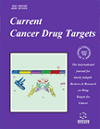
Full text loading...

HER2 exon 20 insertions exhibit relative resistance to chemotherapy and covalent HER2-targeted tyrosine kinase inhibitors (TKIs) in non-small-cell lung cancer (NSCLC). Furthermore, specific missense mutations in the extracellular domain of the HER2 protein have been identified as oncogenic drivers in NSCLC. However, their structural properties and clinical response to HER2-targeted inhibitors remain poorly understood, warranting further investigation. R456C represents a rare exon 12 missense mutation in the HER2 extracellular domain, with limited documentation in NSCLC.
This study presents an atypical case of NSCLC with a HER2 R456C mutation, where the patient experienced a favorable response and substantial survival benefit from the HER2-targeted inhibitor pyrotinib. A patient, a 65-year-old man diagnosed with stage IIIB lung adenocarcinoma, initially underwent radical concurrent chemoradiotherapy. Upon disease recurrence, polymerase chain reaction assay detected no oncogenic alterations, and programmed cell death ligand 1 (PD-L1) expression was negative. Chemotherapy in combination with bevacizumab resulted in stable disease, providing a progression-free survival (PFS) benefit of 6 months. However, anlotinib proved ineffective against brain metastasis, necessitating brain radiotherapy. A subsequent lung biopsy confirmed adenocarcinoma and next-generation sequencing identified a somatic HER2 exon 12 missense mutation, p.R456C. Following pyrotinib administration, the patient’s pulmonary metastases significantly diminished, and the brain metastasis regressed, resulting in a partial response and a PFS benefit of 13 months.
To the best of our knowledge, this study represents the first reported case demonstrating the promising efficacy of pyrotinib in HER2-altered NSCLC harboring the rare exon 12 R456C mutation. Heterogeneous alterations in the HER2 extracellular segment, such as R456C, may be targetable and could confer survival benefits with HER2-targeted inhibitors.